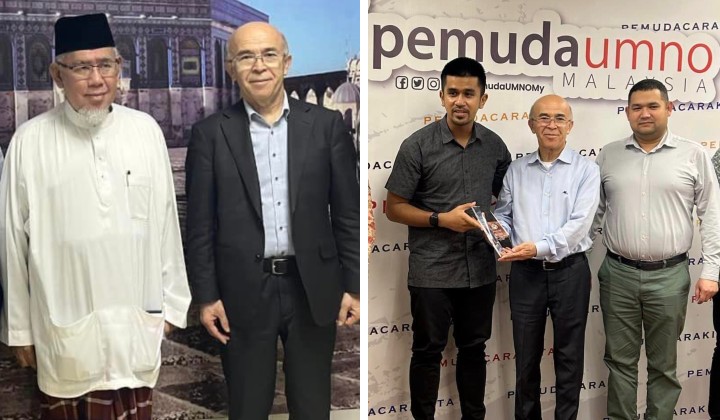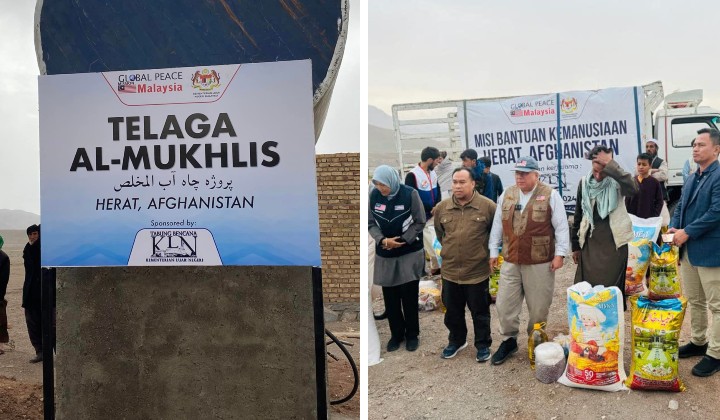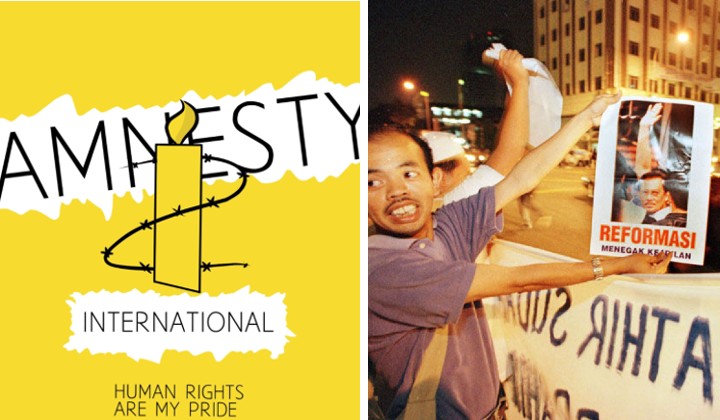Uyghur Activist Omer Kanat’s Malaysia Visit Sparks Controversy Over Israel Stance
Omer Kanat, a prominent Uyghur activist and leader of the World Uyghur Congress (WUC), is currently visiting Malaysia amid controversy surrounding his organization’s stance on the Israel-Palestine conflict. Despite criticism, Kanat has been meeting with local NGOs to discuss the Uyghur cause.

Subscribe to our FREE Newsletter, or Telegram and WhatsApp channels for the latest stories and updates.
Omer Kanat, the Executive Chairman of the World Uyghur Congress (WUC) and Executive Director of the Uyghur Human Rights Project (UHRP), is currently visiting Malaysia to engage with local NGOs and raise awareness about the Uyghur people’s plight.
However, his visit has been met with some controversy due to WUC’s perceived support for Israel in the ongoing Israel-Palestine conflict.
In October 2023, following Hamas’ Operation Al-Aqsa Thunderstorm in response to Israeli incursions, the WUC released a statement condemning the operation as a “terrorist attack.”
This stance drew criticism from some Muslim activists who saw it as contradictory to the broader Islamic world’s support for Palestine’s struggle against Israeli occupation.
WUC’s statement is particularly significant in the context of Malaysia’s long-standing support for Palestine and its recognition of Hamas as a legitimate resistance movement.
Malaysia has consistently advocated for Palestinian rights and has been critical of Israel’s actions in the occupied territories.
The country’s leaders have also expressed solidarity with the Palestinian cause numerous times.
Engagement Amidst Controversy: WUC’s Diplomatic Outreach in Malaysia
Mohd Azmi Abdul Hamid, president of the Malaysian Consultative Council of Islamic Organizations (MAPIM), reportedly expressed concern over WUC’s position.
He was quoted as saying that Uyghurs should align themselves with the global Muslim community’s stance on Palestine.
Mohd Azmi also suggested that WUC’s position might be influenced by its base in Western countries.
Despite the controversy, Kanat has been actively engaging with Malaysian non-governmental organizations (NGOs) during his visit.
In addition to meeting with MAPIM, Kanat also discussed with UMNO Youth, the youth wing of Malaysia’s largest political party.
Kanat’s Visit Amidst Growing Concerns Over Foreign Influence
Kanat’s visit to Malaysia comes at a particularly sensitive time, following a recent controversy involving American professor Bruce Gilley.
Gilley’s speaking engagement at the University of Malaya sparked outrage among some Malaysians due to his pro-American and pro-Israel stance, which many viewed as being at odds with the country’s long-standing support for Palestine and its criticism of Israeli policies in the occupied territories.
Gilley’s incident has also reignited concerns about foreign influence in Malaysian academia and politics.
Some commentators argue that international speakers and activists should be more mindful of the local context and sensitivities when engaging with Malaysian audiences.
In this context, Kanat’s visit has taken on added significance, as it highlights the delicate balance that must be struck between advocating for important human rights causes, such as the plight of the Uyghur people, and the complex web of regional alliances and political sensitivities.
NO ROOM FOR PRO-ZIONIST SENTIMENTS IN UM
— Demokrat UM (@demokratmalaya) April 29, 2024
UM Democrats express disappointment over Dr. Bruce Gilley's recent remarks at UM, deeming them insensitive towards the Palestinian plight. Demokrat UM condemns war crimes in Palestine and stands in solidarity with its people. pic.twitter.com/ha46inZ6PN
READ MORE: US Prof Bruce Gilley Leaves Malaysia After Pro-Zionist Rant, Says Malaysia Isn’t Safe
As a long-time advocate for Uyghur rights, Kanat has been working to raise awareness about what he describes as human rights abuses faced by Uyghurs in China’s Xinjiang region, which is referred to by the Uyghurs as East Turkestan.
The chairman of the Allied Coordinating Council of Islamic NGOs (ACCIN), Jamal Shamsudin, told TRP that Kanat’s statement against Hamas was merely a spontaneous comment and should not detract from the important work being done to support the Uyghur community.
Building Bridges: WUC’s Strategic Dialogue with Malaysia
Meanwhile, MAPIM emphasizes engaging in dialogue and understanding the situation’s complexity in its latest statement.
Commenting on the similarities between the Uyghur and Palestinian struggles, Mohd Azmi said both the Uyghurs and Palestinians are subjected to mass detention and constant surveillance.
Uyghurs are held in re-education camps where political indoctrination and forced labor are rampant, while Palestinians endure routine detentions and face severe mobility restrictions imposed by military checkpoints and barriers. And both Uyghurs and Palestinians are facing genocide, highlighting severe breaches of international human rights law.
Mohd Azmi on why the focus – despite controversy surrounding WUC’s stance on the Israel-Palestine conflict -should remain on the Uyghur cause and the need for solidarity for oppressed groups.
As Kanat continues his visit to Malaysia, it remains to be seen how local NGOs, political parties, and the public will respond to his presence and the issues raised by his organization’s stance on the Israel-Palestine conflict.
READ MORE: World Uyghur Leader Looks To Malaysia For Support
READ MORE: Muslim Nations Must Stop Staying Silent Over China’s Abuse Of The Uyghurs
Share your thoughts with us via TRP’s Facebook, Twitter, Instagram, or Threads.





